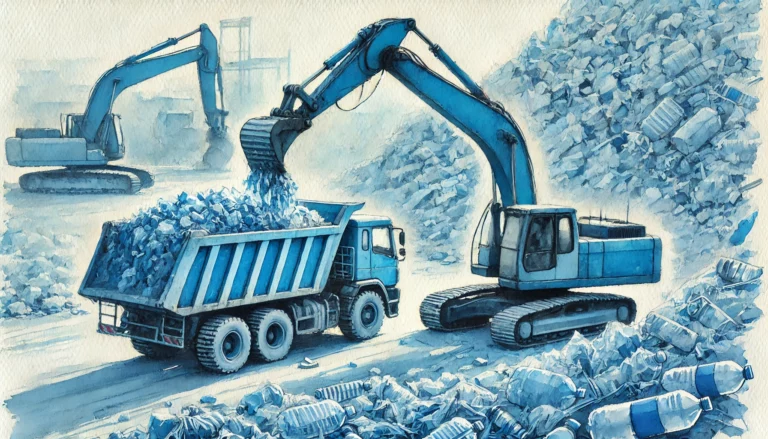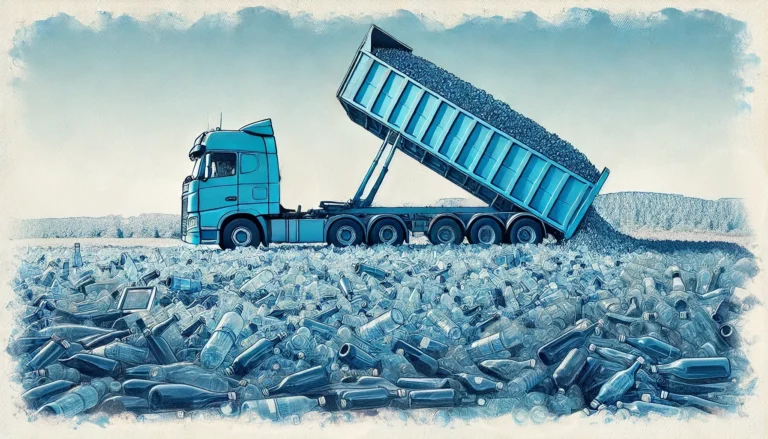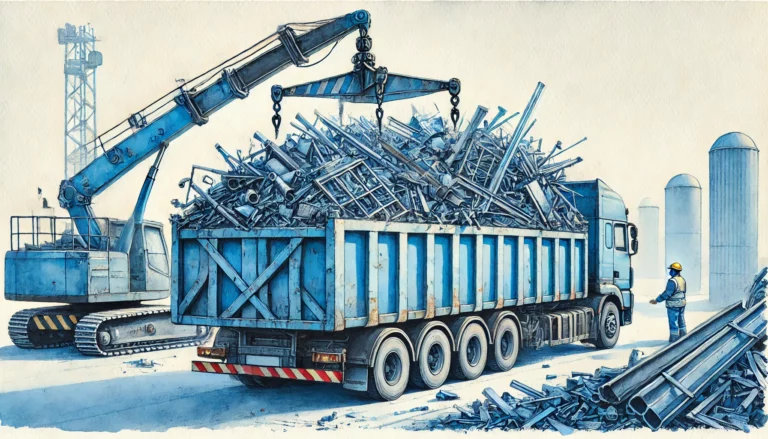Ask the Expert: benefits of having waste transport permit
We’re excited to introduce our new series, “Ask the Expert,” where we dive into the stories and insights of professionals shaping the world of waste management. What inspired their journey toward sustainability? What pivotal experiences have defined their companies? In today’s edition, we’re speaking with Paweł Koszyński, CEO of Innovation Trading Sp. z o.o., a rising star in waste transport across Poland and Europe. Paweł shares his unique journey, offering a firsthand account of how obtaining a waste transport permit not only transformed his business but also reshaped his perspective on the transport industry as a whole.

Paweł Koszyński is a CEO of Innovation Trading Sp. z o.o., a Poland-based company focused on providing the best transport solutions for many national and international clients in Europe. His extensive experience allowed him to be recognized by both big forwarding companies and smaller businesses alike.
What motivated you to obtain a waste carrier permit for your company?
Interestingly enough, the motivation came some time ago from a meeting with one of our biggest clients. They expressed how much they valued working with companies that were certified and compliant with environmental regulations. That conversation resonated with me. I realized that obtaining the permit was about showing our commitment to doing things the right way. It was a moment of clarity that pushed me to take the leap and align our business with higher standards.
Can you briefly explain the process of obtaining the first waste carrier permit? Were there any significant challenges?
The process was straightforward in theory, but in practice, it was a learning curve for us. We had to complete the required documentation, and provide evidence of our ability to handle waste responsibly. I remember one specific hurdle: updating our vehicle fleet to meet environmental standards. It felt overwhelming at the time, but looking back, it was one of the best decisions we made for the business. Once we tackled that, everything else fell into place, and we received the permit without major issues.
How does having the waste permits differentiate your business from competitors who may not have them?
A potential client asked us once if we had the waste transport permit. They were hesitant about working with us until we showed them the documentation they needed. And that was what sealed the deal. It’s moments like these that remind me how much the authorization we struggled to obtain sets us apart. Now clients don’t just see us as another transport company—they see us as a responsible and reliable partner. Other companies without such permits can’t offer the same level of assurance, and that gives us an undeniable edge.
Has the waste transport permits opened up new business opportunities or partnerships that weren’t available for you before?
Absolutely. Soon after obtaining the first permits for Germany and the Netherlands, we signed what would later be the biggest contract we ever signed. It was for a large-scale international waste transport project to deliver scrap metal for some ironworks, for which the permits were a non-negotiable requirement. Without them, we wouldn’t have even been considered. That project opened the door to more opportunities. The news spread about our involvement and since then we’ve partnered with many waste producers.
How has having the permits contributed to your company’s credibility and reputation in the industry?
Honestly, it’s been a game-changer. I once attended an industry event where one of our clients introduced me to a potential partner by saying, “They’re the real deal—fully certified and incredibly professional.” I felt so proud of the steps we’ve taken to be where we currently are. The waste transport permit is like our stamp of credibility. And it’s one of the reasons clients trust us with large, complex projects.
How has obtaining the permit changed your day-to-day business operations?
At first, the changes felt more like a hassle. We had to completely change our approach, implement new solutions, but now, it’s like a second nature to us.
So what adjustments did you make to comply with regulations?
The biggest adjustment was probably upgrading our vehicles to meet environmental standards. After taking the leap and making those changes, I realized how much smoother our operations became. We also invested heavily in employee training. This investment surely paid off, as we wouldn’t be here without the help of our dedicated team.
How have your clients responded to your company obtaining the waste trasport permits?
The response has been overwhelmingly positive. One client, who was initially hesitant to work with us, told me, “Knowing you have the permit gives me one less thing to worry about”. That kind of feedback is invaluable. Clients appreciate that we’ve gone the extra mile to ensure compliance, and it’s deepened their trust in us. It’s not just about winning contracts; it’s about building lasting relationships.
Do you think the permit you obtained has increased customer trust or helped secure contracts?
Undoubtedly. One client reached out to us specifically because they knew we had the necessary permits. They said, “We only work with companies that share our values.” The project that we got involved in soon after, ended up being one of our most rewarding experiences.
How do you see the waste transport permit impacting your business growth in the next five years?
That’s a really good question, you know? I think we’ll expand into new markets and service areas. I see us working on more government and corporate projects that prioritize environmental compliance. We might apply for more permits from other countries to expand our services even further. As they say – That first step you take is the longest stride. With that out of the way, now it’s time for another step.
What advice would you give to other companies considering applying for a waste transport permits?
You might feel overwhelmed at first, but once you start the application process, it will all fall into place. Remember – the waste permit isn’t just a requirement; it’s an opportunity to elevate your business. It can open doors to new possibilities. It can be hard at first, you might be required to change, to adapt. But it will pay off in the long run.







